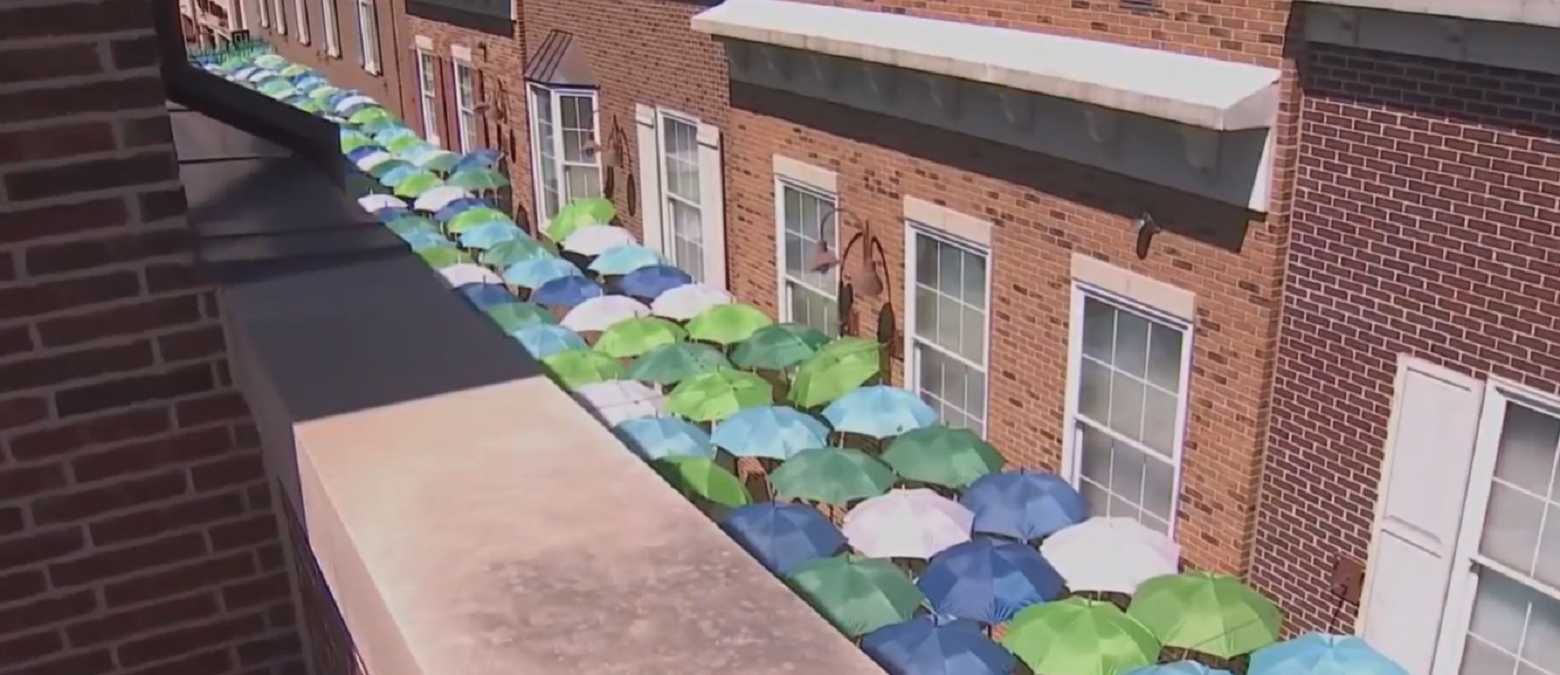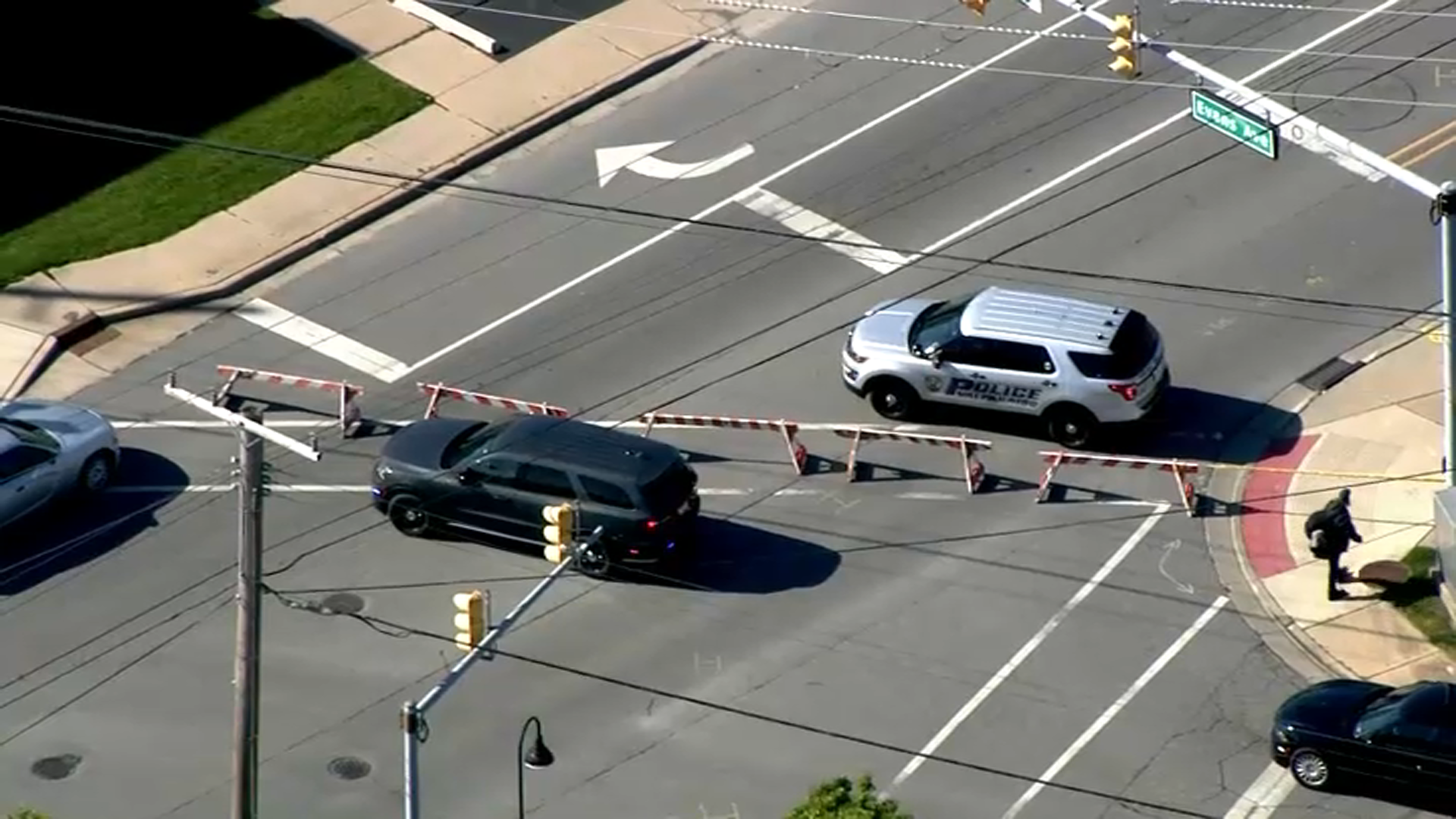The Chicago area watched in horror last summer as hundreds of looters descended on Chicago and some suburbs, smashing windows, ransacking stores and stealing merchandise with abandon.
But a year later, an analysis of court records by NBC 5 Investigates indicates only a few dozen cases have made it through the courts and only a handful of defendants have drawn terms in prison.
The outbreaks of violence in May and August were closely linked to the timing of developments in the death of George Floyd, who died at the hands of police in Minneapolis May 25. But in contrast with the largely peaceful protests that took place in cities across America, those taking part in the looting episodes in Chicago were seen by most observers as opportunists who engaged in criminal activity with little regard for the larger issues of racial justice.
"What was disheartening was the righteous anger being expressed by these protests across the country, particularly here in Cook County, that was hijacked in the criminal acts that we saw later," Cook County State's Attorney Kim Foxx told NBC 5. "Those who took advantage of that time and opportunity to enrich themselves -- those are two totally different groups of people who were out there."
Feeling out of the loop? We'll catch you up on the Chicago news you need to know. Sign up for the weekly Chicago Catch-Up newsletter here.
The Cook County State's Attorney's office approved a total of 392 cases stemming from the two looting episodes in May and August. But nearly a year after the first looters took to the streets, only 33 cases have made it through the courts. Out of those, 26 individuals received probation and only seven will end up doing time in jail.
"Most of the cases that have been resolved have been resolved by a plea agreement where someone has agreed to plead guilty versus to have their case go to trial," Foxx said. "I think when we look at these cases, we look at not only the offense but what that person's background is."
Foxx noted the judges, the final arbiter at sentencing, always look at a defendant's criminal background.
Local
"Perhaps this was their first arrest," Foxx said. "They're more likely to be eligible for probation."
NBC 5 Investigates has been tracking the cases for months, and while it is true that many of the defendants who received probation had no criminal record, several had previous stays in the Illinois Department of Corrections. And we found prior convictions ranging from theft, to unlawful use of a weapon, child endangerment, felony drug charges and domestic battery.
"These were organized groups," said Tanya Triche Dawood, the general counsel for the Illinois Retail Merchants Association. "They took advantage of this particular moment to do great damage all at once."
Dawood stopped short of saying she wants to see more jail time for looters, noting "the fact that they have been convicted of a felony is a win."
"We look forward to them getting their day in court and getting sentenced, and hopefully getting some justice done for those retailers," she said. "We want to make sure the State's Attorney and the courts are taking into account the activity that happened, the seriousness of the activity that happened, and sending a message through following through on sentencing, that this behavior will not be tolerated here in the City of Chicago or elsewhere in the state."
"I'd love to see them in jail for sure," said Eddie Kim of the looters who hit his family's clothing store on May 30. "I just wish more was done to stop those people or help hold those people accountable."
Kim's father Hal Tong Kim stood in the doorway and begged looters to spare his store at 34th and King Drive on May 30. He was unsuccessful and thieves ransacked the business.
"I told them, 'Please, don't loot this store,'" the elder Kim told NBC 5. "I don't want to look -- my heart is broken."
No one was arrested for that episode.
"I didn't know people were capable of that," Eddie Kim told NBC 5. "I hate to think those people are still out there."
Caspian Rugs on North LaSalle Street was hit during both looting episodes in May and August. Manager Lazar Malik estimated the losses at hundreds of thousands of dollars.
"The first time they broke the first window and took a lot of rugs, but
the second time was worse," Malik said. "We need justice. I mean that's not fair what happened to all these store owners."
Foxx says she wants to see justice too.
"Accountability doesn't just mean prison sentences or prison terms," the State's Attorney said. "Accountability by probation means someone has a conviction on their record, and we should note that having a conviction hinders one's ability to get a job, housing and the like. And so, having that conviction and having probation doesn't mean someone's gotten away for their crimes. In fact, having that conviction is severe."
The State's Attorney said pandemic-related closures are to blame for the slow pace of the cases making their way through the system and that she believes that process will accelerate as the courts gradually reopen. She insisted that no one is receiving preferential treatment because of the events surrounding the death of George Floyd.
"There was no pass that was given because these were in the wake of civil unrest," Foxx said. "This was a deviation from the civil unrest. These were people who were taking advantage of a circumstance for their own personal gain, and they have to be held accountable."
Largely due to the kindness of strangers who contributed over $200,000 to a
GoFundMe drive, Kim's family was able to reopen a larger store with enhanced security at a new location nearby. He said he wished the looters who hit his family's business could experience what they faced over the last year.
"It'd be awesome to see them start a small business, put their lives into it and just have everything taken away from them in one day," he said. "But obviously, that's not going to happen."
Dawood said she thinks it's important that a message be sent as the city heads into another summer.
"It sends a signal, once people are not just charged, but they're sentenced, and that sentence is impactful, that it really suppresses the behavior of people who want to engage in that activity in the future."



